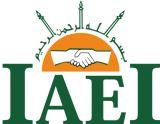Parmalim Religious Community's Interest in Sharia Bank: Parmalim Religious Community's Understanding of Interest
Abstract
Keywords
References
Ammar, M. I., Sociology, J., Science, F., And, S., Politics, I., & Sriwijaya, U. (2022). RAMA_69201_07021181823024_0003067503_0006069204_01_front_ref.
Boni, H., Simbolon, E. T., & Lumbantobing, R. (2023). The Dynamics of Ugamo Malim's Faith in Fighting for Civil Rights in Toba Regency. Asketik, 7(1), 155-172.
Cahaya, L. A., & Nurlaila, N. (2022). The effect of knowledge about usury on the interest of saving money at Bank Syariah on students of the State Islamic University of North Sumatra FEBI.
Candradewi, R. A. (2022). The influence of the public's understanding of the bank's share of proceeds and interest on interest in becoming customers in Islamic banks (Study on the community of Kuripan Village, Karangawen District, Demak Regency).
Çimen, S., Nasution, F. A., & Mokhammad Samsul Arif. (2020).Electoral Governance ndonesian Election Governance Journal, 12(2), 6. https://talenta.usu.ac.id/politeia/article/view/3955
Izzaty, R. E., Astuti, B., & Cholimah, N. (2019). Definition of understanding. Angewandte Chemie International Edition, 6(11), 951-952., 5-24.
Kartika, I. S. (2020). Definition of Understanding. The Influence of Understanding of the Bank's Share of Income and Interest on Interest in Becoming Customers in Sharia Bank's IniPaper Knowledge . Toward a Media History of Documents (Vol. 3, Issue April).
Michael. (n.d.). Known to Ugamo Malim, the "First Religion" of the Batak people.
Nopiardi, R. (2021). The Effect of Understanding of Income and Interest on the Interest of the People in Choosing Sharia-Based Financing in Kampar District, Kampar Regency.
NURAFNI. (2023). The Effect of Pekkabata Public Knowledge About Sharia Bank Products on Interest in Becoming Customers.
Nuzulia, A. (1967).Angewandte Chemie International Edition, 6(11), 951-952., 1(1), 5-24.
Sri Kurnialis, Zahrotul Uliya, Fitriani, Miftahul Aulasiska, & Muhammad Syahrul Nizam. (2022). Development of Sharia Banking in Muslim Countries. Syarikat: Jurnal RumpuniEkonomi Syariah, 5(2), 109-119. https://doi.org/10.25299/syarikat.2022.vol5(2).9688
Alapján-, V. (2016). Understanding Student Understanding. 2(2), 1-23.
Ammar, M. I., Sosiologi, J., Ilmu, F., Dan, S., Politik, I., & Sriwijaya, U. (2022). RAMA_69201_07021181823024_0003067503_0006069204_01_front_ref.
Boni, H., Simbolon, E. T., & Lumbantobing, R. (2023). The Dynamics of Ugamo Malim's Souls in Fighting Civil Rights in Toba Regency. Asketik, 7(1), 155-172. https://doi.org/10.30762/asketik.v7i1.1260
Cahaya, L. A., & Nurlaila, N. (2022). The effect of knowledge about usury on the interest of saving money at Bank Syariah on students of the State Islamic University of North Sumatra FEBI. Fair Value: Accounting Science Journal and Finance,(5), 2118-2126. https://doi.org/10.32670/fairvalue.v5i5.2766
Candradewi, R. A. (2022). The influence of the public's understanding of the bank's share of proceeds and interest on interest in becoming customers in Islamic banks (Study on the community of Kuripan Village, Karangawen District, Demak Regency).Çimen, S., Nasution, F. A., & Mokhammad Samsul Arif. (2020).Electoral Governance Indonesian Election Governance Journal, 12(2), 6. https://talenta.usu.ac.id/politeia/article/view/3955
Izzaty, R. E., Astuti, B., & Cholimah, N. (2019). Definition of understanding Angewandte Chemie International Edition, 6(11), 951-952., 5-24.
Kartika, I. S. (2020). The Effect of Understanding of the Bank's Profit and Interest Sharing on Interest in Becoming Customers in Sharia Banks. IniPaper Knowledge . Toward a Media History of Documents (Vol. 3, Issue April).
Michael. (n.d.). Known to Ugamo Malim, the "First Religion" of the Batak people.Nopiardi, R. (2021). The Effect of Understanding of Income and Interest on the Interest of the People in Choosing Sharia-Based Financing in Kampar District, Kampar Regency.
NURAFNI. (2023). The Effect of Pekkabata Public Knowledge About Sharia Bank Products on Interest in Becoming Customers.
Nuzulia, A. (1967).Angewandte Chemie International Edition, 6(11), 951-952., 1(1), 5-24.
Sri Kurnialis, Zahrotul Uliya, Fitriani, Miftahul Aulasiska, & Muhammad Syahrul Nizam. (2022). Development of Sharia Banking in Muslim countries. Society: Journal of the Sharia Economic Cluster, 5(2), 109-119. https://doi.org/10.25299/syarikat.2022.vol5(2).9688
Sta, P. & Ibrahim, B. (2015). History of the Malim faith in Toba Samosir Regency 1907-1956. 1-7.
Sulhani, S., & Mughni, A. (2022). Revealing the Social Function of Sharia Banking and its Effect on Financial Performance. JPS (Jurnal PerbankaniSyariah), 3(2), 85-102. https://doi.org/10.46367/jps.v3i2.737
Tambunan, S. T., Simamora, E. R., & Situmeang, D. M. (2023). Religious tourism as a Parmalim community tradition. Pediaqu: Dani Humaniora's Journal of Social Education, 2(3), 11604-11616.
Untuk, D., & Tugas, M. (2021). Debt receivables in the perspective of Islamic economics (Study on the Taklim Assembly of South Kotabumi District, North Lampung Regency) Scripted by: Islamic economics (Study on the Taklim Assembly of South Kotabumi District, North Lampung Regency) Scripti.
Vinet, L., & Zhedanov, A. (2011). A "missing" family of classical orthogonal polynomials. Journal of Physics A: Mathematical and Theoretical, 44(8), 1689-1699. https://doi.org/10.1088/1751-8113/44/8/085201
DOI: http://dx.doi.org/10.30821/se.v0i1.21495
Refbacks
- There are currently no refbacks.













